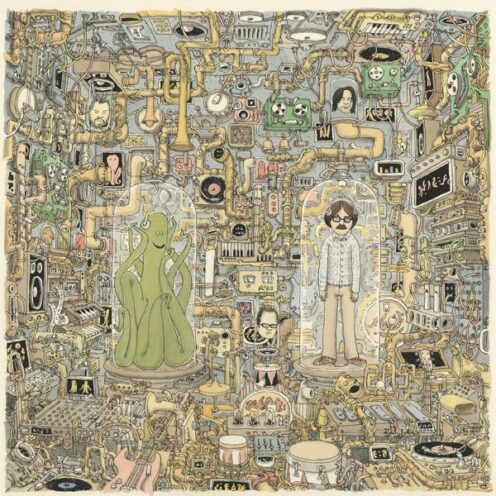Rivers Cuomo is a popstar. It’s an interesting revelation considering the Weezer frontman has spent the better half of the last 25 years chasing mainstream recognition (something the band has had since releasing their first single, “Undone – The Sweater Song” in 1994), but for as many times as he’s turned his band into a modern pop-rock experiment and apologized for it on the very next album, Cuomo continues to craft unbelievable earworms, whether he’s utilizing a team of co-writers and producers or simply his strat with the lightning strap.
To understand and accept this is to be a Weezer fan. Just as it’s been noted that the singular band has essentially split into two — one putting out weird records while the other puts out, well, Weezer records — fans can rarely know what to expect when they hear new music is coming, even when it’s been described to them beforehand. Put simply, we’ve been burned before, and we’re all ready to feel like clowns the day after a new single drops and it sounds closer to Twenty One Pilots than the band that wrote “Keep Fishin’.” Still, we have a reason to be excited; it seems that the plastic, filler-ridden mid-career crisis that plagued the band in the late 2000s is over. Since 2014’s Everything Will Be Alright in the End, the band has (more or less) released consistent albums that, at the very least, keep Weezer fans guessing. While they still jet back and forth between pop-rock and expertly executed power-pop, there’s energy once again present that seemed to disappear somewhere around 2007’s self-titled red album. Weezer seem invested in the music they’re making (having averaged a new album each year since 2014), and more importantly, the records they’re making feel like Weezer records – even the weird ones. For my money, their latest is the closest the band has come to merging those two lanes; OK Human is a left-field masterpiece that comes dangerously close to reaching the heights of the band’s early career.
Read More “Weezer – OK Human”









